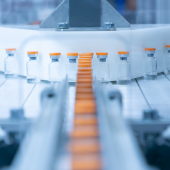Markets to explore: Indonesia
The packaging and converting industry is in full bloom in Indonesia, contributing 5.95 billion USD to the country’s GDP.
 Indonesia’s highly dynamic packaging industry is growing by 8% annually and is expected to grow by double digits over the next three years (reaching the equivalent of about 9.6 billion dollars).
Indonesia’s highly dynamic packaging industry is growing by 8% annually and is expected to grow by double digits over the next three years (reaching the equivalent of about 9.6 billion dollars).
The food & beverage sector covers 67% of the packaging market, followed by pharmaceuticals, cosmetics and the automotive sector.
Plastic consumption in the local market remains fairly modest with approximately 17 kg per capita annually, compared to Malaysia and Thailand’s 35 kg and Singapore’s 40 kg. Domestic industry is currently able to supply the market with about 3.6 t of plastic, compared to a domestic demand for 4.3 million t. This gap is filled by imports that are subsidized, partly by tariff removals on more than 10,000 plastic products and semi-processed goods.
As for the mix of packaging (according to the Indonesian Packaging Federation), flexible and rigid plastic packaging hold the largest shares (approximately 55% of demand), followed by cardboard packaging (31% of demand).
The Italian packaging industry is fairly popular among local enterprises, with constant growth in recent years, around 22% of total Indonesian imports.
Until 2013, Italy was the country’s second largest supplier, behind Germany (which covers approximately one third of domestic demand). In 2014, Italian exports nearly doubled, reaching 221 million dollars, representing about 15% of total exports from Italy to Indonesia.
This exploit has enabled Italy to overtake the Germans (who remain stable at 33%), making the country the leader for the first time, with a market share of 34%.

Prospects and opportunities
In order to become more competitive with neighboring countries and in such a way sustain packaging exports, local industry is in the process of acquiring latest generation machinery, and is also investing in the recycling business, which is a pressing issue in big cities.
Local authorities are encouraging local concerns to adopt environmentally sustainable solutions. In the capital of Jakarta alone, 6 million tons of refuse is produced every day, 14% of which by plastic waste. Nonetheless, the recycling process is still in its infancy due to a lack of dedicated infrastructure and qualified recycling experts.
Some local enterprises have begun producing rPET containers by adopting high tech solutions imported from abroad. At the moment, the manufacturers who use recycled plastic supply polystyrene products as well as plastic sheets for the textile sector and the bottling industry.
The greatest opportunities for the plastic packaging sector are tied to rising household incomes and constant growth of Indonesian exports to ASEAN countries and China. However, the ongoing depreciation of the local currency could negatively affect imports of semi-processed goods indispensable for the plastic industry, making local products less competitive. In order to withstand the higher costs of imports, local concerns will therefore be driven to invest in packaging waste recovery processes. Some concerns have already invested in recycling equipment, especially on the island of Bali, where a 30 t/day waste converting unit produces plastic pallets. Nonetheless, the local government will have to implement legislation favoring both collection and recycling of waste, but most importantly, it will have to guarantee incentives to enterprises so that they can invest in converting equipment and in green technologies generally.

Indonesian Associations
Indonesian Packaging Federation & Affiliates (www.packindo.org)
Apgi (Indonesian Glass Manufacturers Association)
Aphindo (Indonesian Downstream Plastic Industries)
Apki (Indonesian Pulp And Paper Industries Association)
Apkki (Indonesian Woven Polyolefin Manufacturers Association)
Inaplas (Indonesian Aromatic, Olefin &Plastic Industries Association)
Picci (Indonesian Corrugated Cardboard Industries Association)
Rotokemas (Indonesian Flexible Packaging Industries Association)
The project is coordinated from the ICE-Agenzia headquarters in Rome, out of the Office of Engineering, Chemicals, Energy and Environment, directed by Alessandro Liberatori. Management representative: Matteo Masini, tel. 06.5992.9356, email: [email protected]




















